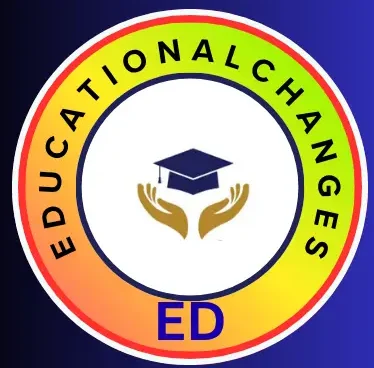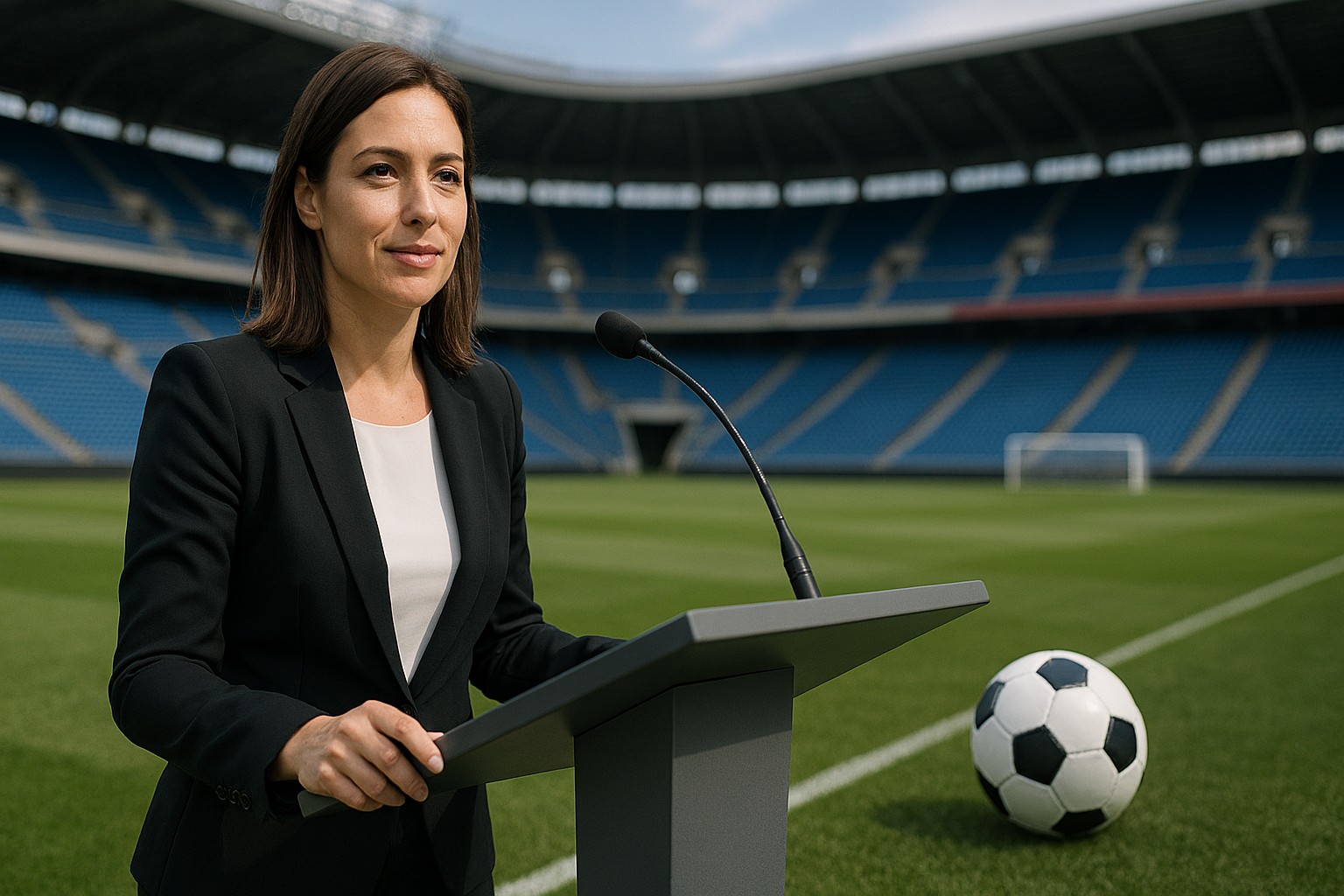
The landscape of women’s football has transformed dramatically, and with it, the rise of influential women football speakers who are shaping conversations both on and off the pitch. As we navigate through 2025, these powerful voices are not just sharing their experiences—they’re driving policy changes, inspiring the next generation, and revolutionizing how we perceive women’s sports.
A women football speaker in 2025 represents far more than traditional sports commentary. These are dynamic professionals who leverage their football expertise to address critical issues including gender equality, leadership development, tactical innovation, and social change. From former World Cup champions delivering keynote speeches at corporate summits to grassroots advocates speaking at university forums, these speakers are bridging the gap between sports excellence and meaningful social impact.
This comprehensive guide explores the evolving role of women football speakers, their diverse backgrounds, the platforms they occupy, and the transformative messages they deliver. Whether you’re seeking to understand this growing field, looking to book a speaker, or aspiring to become one yourself, this resource provides the insights you need to navigate the dynamic world of women’s football speaking in 2025.
Top Women Football Speaker 2025
Sarina Wiegman
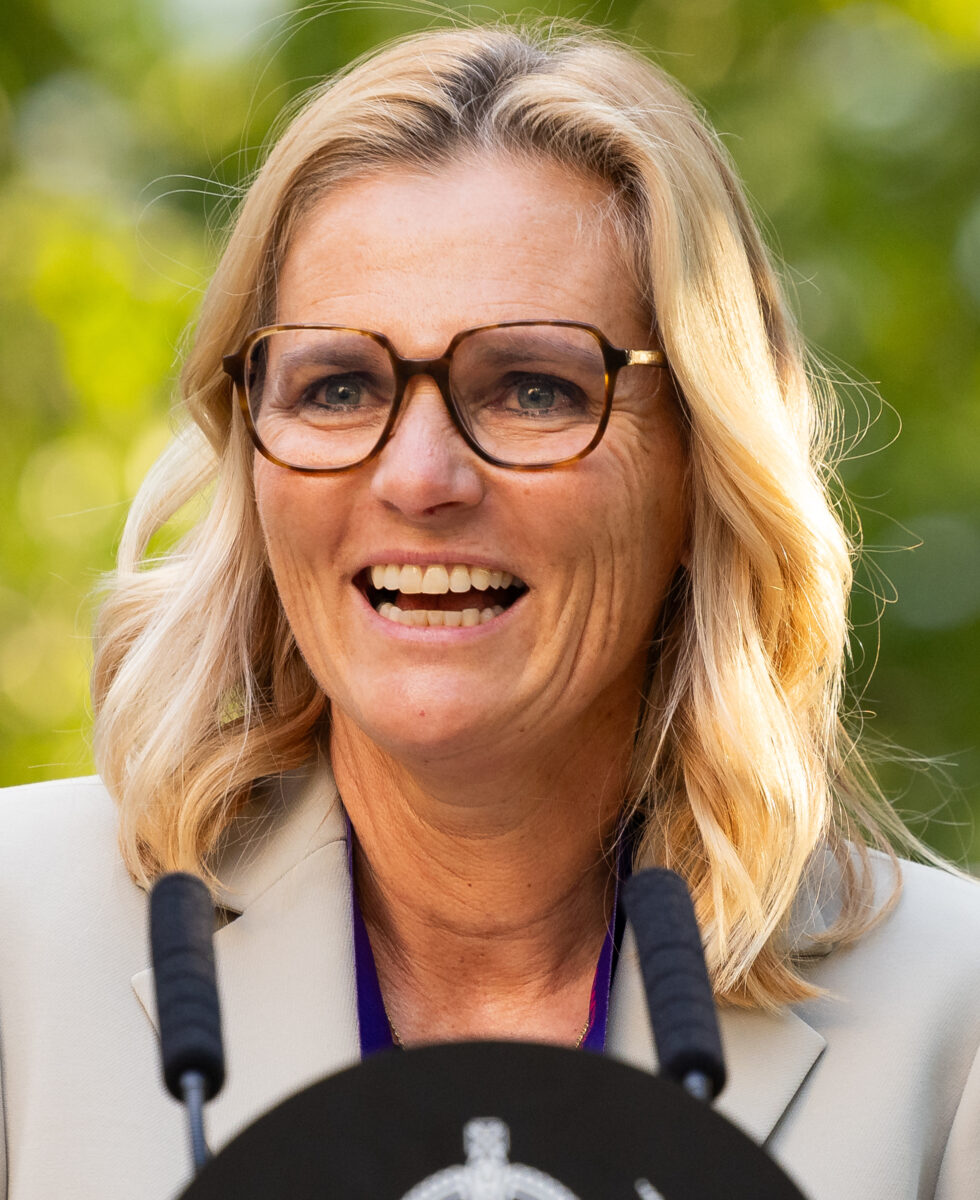
Sarina Wiegman is a world-class coach and speaker whose career bridges elite performance, leadership and culture change in women’s football. Renowned for tactical clarity, calm leadership and elite player development, she rose to global prominence after guiding national teams to major finals and titles; her talks combine behind-the-scenes tournament leadership with practical frameworks for building winning teams, managing pressure, and creating inclusive high-performance environments. Wiegman’s signature stories—about preparing teams for tournament peaks, developing leadership across a squad, and translating coaching principles into organisational culture—make her an ideal keynote for sporting federations, coaching conferences, and corporate leadership events seeking lessons in resilience, strategy and people management.
Leah Williamson
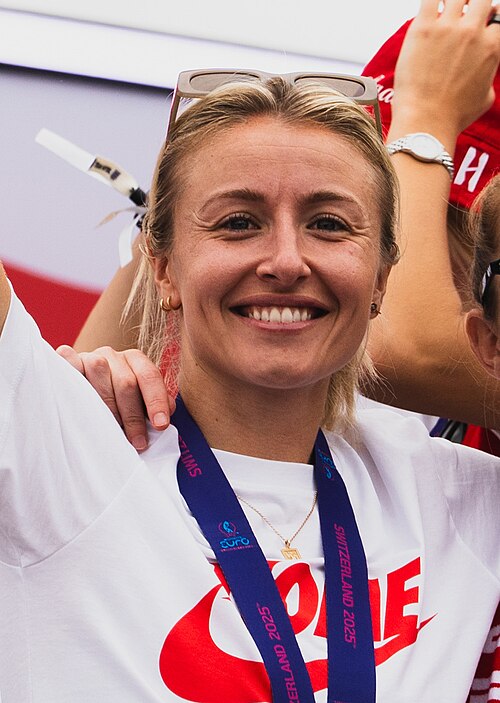
Leah Williamson is a composed, technically gifted centre-back whose leadership on and off the pitch translates naturally to engaging, grounded speaking. As a club and national-team leader, she speaks powerfully about modern defensive thinking, adapting leadership styles as a young captain, and balancing elite sport with personal values and community responsibility. Williamson’s talks suit audiences who want insight into leading by example, developing identity and discipline within teams, and building pathways for young players—especially useful for academy programs, youth development summits, and inclusion initiatives that emphasise mentorship and long-term player welfare.
Mary Earps
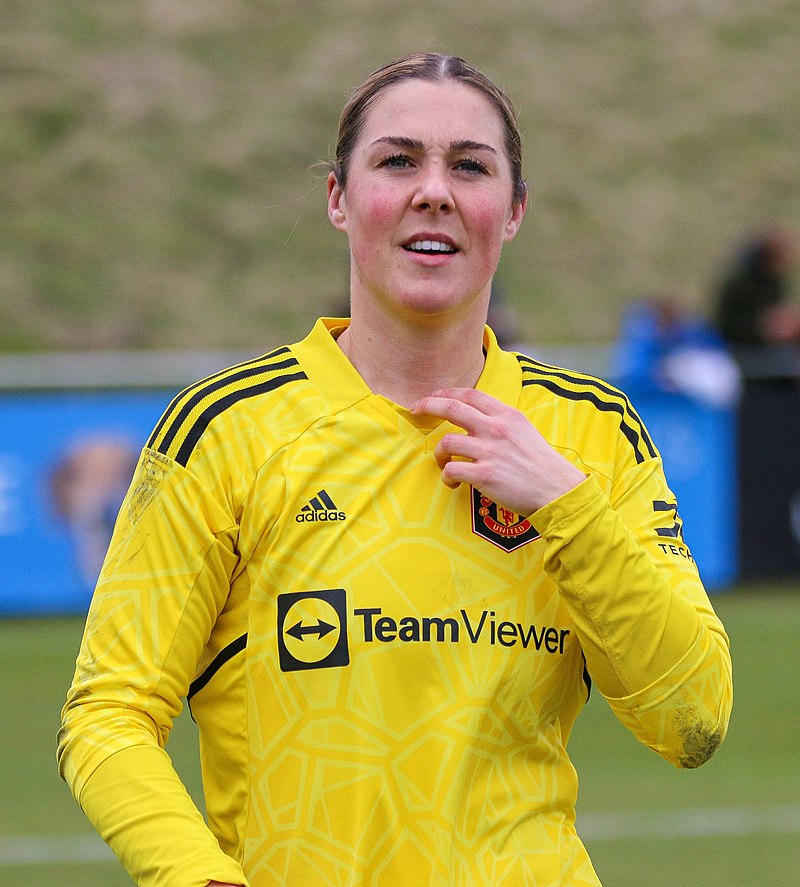
Mary Earps is one of the most visible goalkeepers in the women’s game and a compelling, media-savvy speaker who blends elite sporting performance with advocacy for athlete welfare and equality. Known for match-winning presence, vocal leadership from the back, and high-pressure performance such as major tournaments, Earps brings gripping first-person stories about preparation, mental toughness and the role of representation in sport. Her talks work exceptionally well for events focused on sports psychology, media training, women’s empowerment, and commercial partners who want an outspoken ambassador for positive change in football and broader society.
Jill Scott
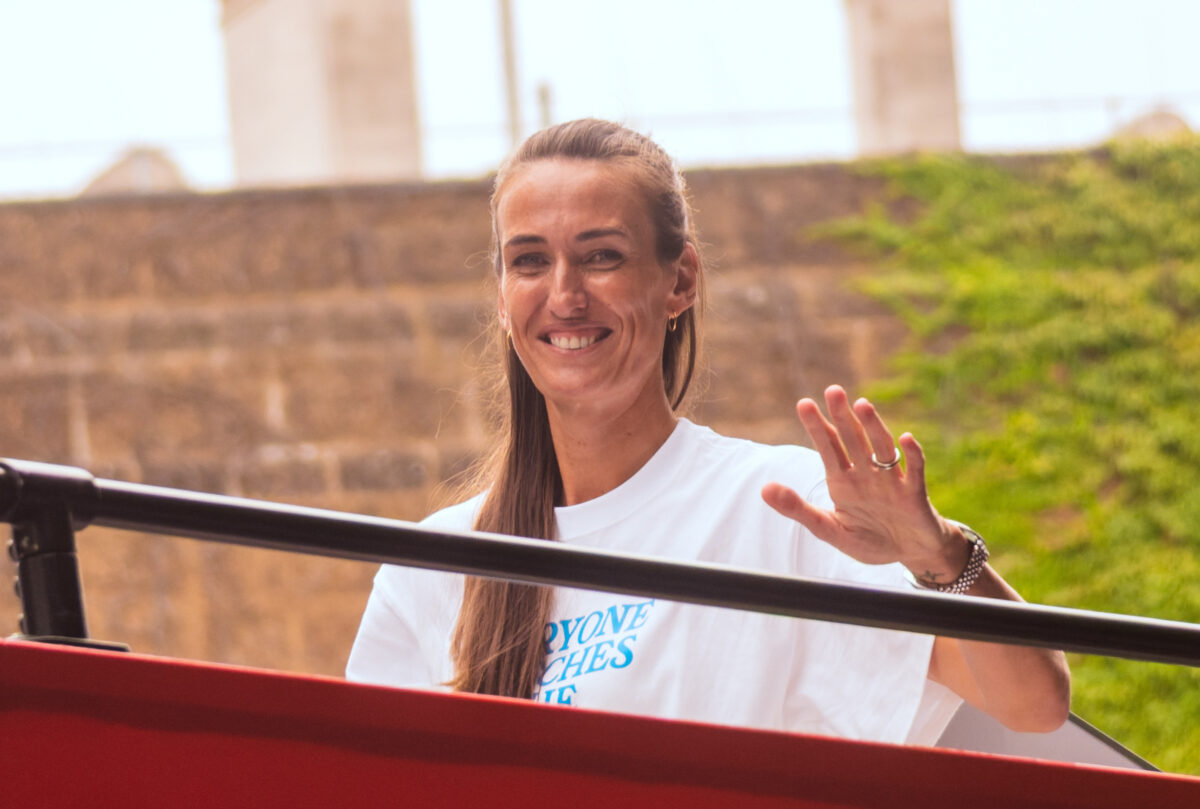
Jill Scott brings an authentic veteran voice: long international service, on-field intelligence and a smooth transition into broadcasting and mentoring that make her an effective storyteller and practical coach-speaker. Her experiences—covering career longevity, adapting after setbacks, and translating technical midfield insight into leadership lessons—resonate with players, coaches and corporate audiences alike. Scott’s sessions tend to mix candid personal memoirs with actionable sessions on leadership, teamwork and career planning, making her an excellent choice for community clubs, player development workshops and corporate diversity and resilience panels.
Rachel Yankey
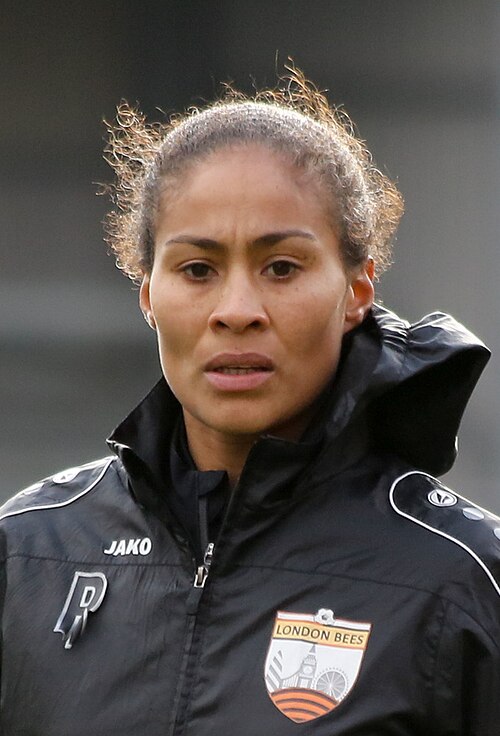
Rachel Yankey is a pioneering figure in English women’s football whose career as a decorated winger and grassroots advocate gives her talks historical depth and social impact. As an early trailblazer and role model, she offers a compelling narrative on breaking barriers, the evolution of the women’s game, and building sustained pathways from grassroots to elite levels—paired with pragmatic advice on coaching young talent and community engagement. Yankey’s presence is especially powerful at education events, grassroots conferences, equality and inclusion forums, and sponsor activations that want a credible storyteller who connects sport, history and social progress.
Understanding the Women Football Speaker Landscape in 2025
The term “women football speaker” encompasses a diverse group of professionals who combine football expertise with public speaking excellence. These individuals represent various backgrounds within the football ecosystem, from retired international players and successful coaches to media personalities and policy advocates.
What distinguishes women football speakers in 2025 is their unique positioning at the intersection of sports achievement and social influence. Unlike previous generations who primarily focused on match analysis or personal anecdotes, today’s speakers address complex themes including systemic inequality, leadership psychology, tactical evolution, and global development strategies.
The relevance of women football speakers has reached unprecedented levels in 2025, driven by several key factors. The continued growth of women’s professional leagues worldwide has created a larger pool of experienced professionals. Major tournaments like the FIFA Women’s World Cup have elevated player profiles internationally. Corporate recognition of women’s sports as valuable marketing platforms has increased demand for authentic voices who can connect with diverse audiences.
Modern women football speakers operate across multiple domains simultaneously. They might deliver a tactical analysis presentation at a coaching clinic in the morning, speak about leadership resilience at a corporate conference in the afternoon, and advocate for policy changes at a federation meeting in the evening. This versatility has made them invaluable assets for organizations seeking speakers who can address both sports-specific and broader societal topics.
Historical Evolution of Women in Football Speaking
The journey of women football speakers began with pioneering players who transitioned from the pitch to the podium out of necessity rather than design. In the early decades of women’s football, retired players often found themselves as the only credible voices available to discuss the women’s game, leading to speaking opportunities that were initially limited and poorly compensated.
Throughout the 1990s and early 2000s, women football speakers primarily operated within narrow confines. They were typically invited to speak at women-only events, youth clinics, or as token representatives at larger sports forums. The topics were often restricted to inspirational messages about overcoming adversity or basic technical instruction.
The transformation accelerated significantly during the 2010s as women’s football gained mainstream recognition. The success of tournaments like the 2015 FIFA Women’s World Cup created household names who could command larger audiences. Media coverage improvements meant more women had platforms to develop their public speaking skills while still playing professionally.
The 2020s marked a watershed moment for women football speakers. The professionalization of women’s leagues globally created a larger pool of articulate, media-trained professionals. Social media platforms allowed speakers to build personal brands independently. Most importantly, organizations began recognizing that women football speakers could address universal themes of leadership, resilience, and strategic thinking that resonated with audiences far beyond sports.
By 2025, we’ve witnessed the emergence of a mature speaker ecosystem where women football professionals are sought after not just for their football credentials, but for their insights on topics ranging from organizational change management to international development strategies.
Categories and Types of Women Football Speakers
Professional Footballers Turned Speakers
Former professional players represent the largest and most recognizable category of women football speakers in 2025. These individuals bring authentic experiences from the highest levels of competition, offering unique perspectives on performance psychology, team dynamics, and achieving excellence under pressure.
International players who competed in World Cups, Olympic Games, or major continental championships often command the highest speaking fees and largest audiences. Their presentations typically combine personal journey narratives with practical lessons about goal-setting, handling setbacks, and maintaining focus during critical moments. Many integrate video footage from memorable matches to illustrate points about decision-making under pressure or tactical awareness.
Players from professional domestic leagues bring different but equally valuable perspectives. They often focus on themes like career transition, balancing multiple responsibilities, and building sustainable success over time. These speakers frequently connect with audiences who may not aspire to international competition but recognize the universal challenges of professional development and team collaboration.
The most successful player-turned-speakers have developed expertise beyond their playing experience. They often pursue coaching licenses, business education, or specialized training in areas like sports psychology or leadership development. This additional knowledge allows them to offer more sophisticated presentations that combine emotional storytelling with practical frameworks their audiences can implement.
Coaches, Managers, and Analysts
The coaching community within women’s football has produced some of the most insightful and tactically sophisticated speakers in the field. These professionals offer perspectives on strategic thinking, team building, and performance optimization that translate effectively to corporate and educational environments.
Head coaches from professional women’s teams bring unique insights about managing high-performance teams, implementing systematic approaches to improvement, and navigating complex organizational dynamics. Their presentations often focus on leadership philosophies, communication strategies, and methods for developing individual potential within team structures.
Assistant coaches and specialized analysts offer more technical perspectives that appeal to coaching clinics, sports science conferences, and professional development forums. They might discuss data analysis techniques, video analysis methodologies, or specific tactical innovations they’ve implemented successfully.
Many coaching speakers have diversified their expertise by working across multiple levels of the game, from grassroots development to international competition. This breadth of experience allows them to address audiences with varying levels of football knowledge while maintaining relevance and engagement.
Activists and Advocates
Women’s football has produced numerous advocates who use speaking platforms to promote equality, inclusion, and policy reform. These speakers often combine personal football experiences with broader social justice themes, making them particularly valuable for organizations focused on diversity, equity, and inclusion initiatives.
Policy advocates typically focus on systemic issues affecting women’s sports, including funding disparities, media coverage inequities, and structural barriers to participation. Their presentations often include data-driven analysis of current conditions alongside strategic recommendations for improvement.
Grassroots advocates bring perspectives from community-level development, discussing challenges and opportunities in youth development, facility access, and cultural barriers to participation. These speakers often have compelling stories about overcoming resource limitations and building programs from scratch.
International advocates who work across different cultural contexts offer valuable insights about global development strategies, cultural sensitivity in program design, and collaborative approaches to systemic change.
Media Personalities and Commentators
The growth of women’s football media coverage has created a category of speakers who combine football expertise with media sophistication. These professionals often serve as bridges between the technical aspects of the game and broader public understanding.
Television and radio commentators bring unique perspectives about storytelling, audience engagement, and communication strategies. Their presentations often focus on media literacy, personal branding, and effective communication techniques.
Digital media personalities who have built significant social media followings offer insights about content creation, audience building, and leveraging technology platforms for advocacy and education.
Print and digital journalists who cover women’s football bring investigative perspectives about industry trends, policy implications, and emerging opportunities within the sports ecosystem.
Core Audiences and Venues
Sporting Events and Tournaments
Major tournaments serve as primary platforms for women football speakers, providing opportunities to reach concentrated audiences of stakeholders from across the football ecosystem. FIFA Women’s World Cup events typically feature extensive conference programming that includes keynote presentations, panel discussions, and specialized workshops.
Regional tournaments like the UEFA Women’s European Championship, Copa América Femenina, and African Women’s Cup of Nations increasingly incorporate speaking components that address technical development, commercial growth, and policy advancement themes.
Professional league events, including season launch presentations, mid-season summits, and end-of-season awards ceremonies, provide regular speaking opportunities for women football professionals. These venues often focus on league-specific challenges and opportunities while connecting to broader industry trends.
Youth tournament events represent growing opportunities for women football speakers who specialize in development themes. These presentations often address coaching methodologies, player pathway development, and creating inclusive environments for young athletes.
Conferences and Summit Events
Sports leadership conferences have become major venues for women football speakers, particularly those who can address themes that extend beyond football-specific topics. These events typically seek speakers who can connect sports experiences to broader leadership principles, organizational development strategies, and change management approaches.
Gender equality and inclusion forums specifically seek women football speakers who can provide authentic perspectives on systemic barriers, successful intervention strategies, and measurable progress indicators. These presentations often combine personal experiences with data analysis and policy recommendations.
Business and corporate conferences increasingly feature women football speakers who can address themes like team performance, strategic planning, and stakeholder management. The business community has recognized that football professionals often have sophisticated understanding of performance optimization, competitive analysis, and crisis management.
Educational conferences, particularly those focused on leadership development, youth engagement, or international development, frequently feature women football speakers who can connect sports experiences to educational outcomes and personal development themes.
Educational Institutions
Universities and colleges represent significant opportunities for women football speakers, particularly those who can address academic audiences interested in sports studies, business applications, or social impact themes. These presentations often include Q&A sessions that allow for deeper exploration of complex topics.
Business schools frequently invite women football speakers who can provide case studies about leadership, strategic decision-making, and organizational development. These presentations often use football scenarios to illustrate broader business principles.
Education schools seek speakers who can address themes like youth development, coaching methodologies, and creating inclusive learning environments. These presentations often connect football experiences to pedagogical approaches and student engagement strategies.
International studies programs frequently feature women football speakers who can discuss global development, cultural exchange, and international cooperation through sports-based examples and experiences.
Corporate and Brand Engagements
Corporate speaking opportunities have expanded significantly as businesses recognize the value of authentic voices who can address workplace themes through sports-based perspectives. Companies often seek women football speakers for events focused on leadership development, team building, and organizational culture initiatives.
Brand partnerships frequently include speaking components where women football professionals represent company values while sharing expertise about performance, goal achievement, and maintaining excellence under pressure. These engagements often combine product promotion with educational content.
Internal corporate events, including sales meetings, leadership retreats, and diversity initiatives, increasingly feature women football speakers who can provide fresh perspectives on familiar business challenges while inspiring teams toward improved performance.
Industry-specific conferences in sectors like technology, finance, and healthcare often feature women football speakers who can provide analogies and insights that help audiences understand complex professional challenges through sports-based frameworks.
Key Themes and Messaging Approaches
Inspirational Journeys and Leadership Development
Personal transformation stories remain among the most powerful and requested themes for women football speakers in 2025. These presentations typically focus on overcoming specific obstacles, developing resilience, and maintaining motivation during challenging periods.
Leadership development themes often explore the unique aspects of team leadership in competitive environments, including decision-making under pressure, motivating diverse personalities, and maintaining team cohesion during difficult periods. Many speakers use specific match situations or season-long challenges to illustrate leadership principles that apply across various professional contexts.
Building resilience presentations often address both physical and psychological challenges that football professionals face, including injury recovery, performance setbacks, and career transitions. These themes particularly resonate with audiences facing their own professional or personal challenges.
Teamwork and collaboration messages typically explore the sophisticated coordination required in modern football, drawing parallels to workplace collaboration, project management, and organizational effectiveness. Speakers often use tactical examples to illustrate communication strategies and role clarity principles.
Technical and Tactical Insights
Modern game analysis presentations appeal to technically sophisticated audiences interested in strategic thinking, data analysis, and systematic approaches to performance improvement. These presentations often include video analysis components and statistical breakdowns that demonstrate analytical thinking processes.
Tactical evolution themes explore how women’s football has developed strategically over time, often drawing comparisons to business strategy development, market adaptation, and competitive response strategies. These presentations can appeal to both football and business audiences.
Coaching methodology presentations focus on systematic approaches to skill development, performance optimization, and team preparation. These themes often translate effectively to training and development contexts in corporate and educational settings.
Data-driven decision making presentations explore how modern football uses analytics to inform strategic choices, player development decisions, and performance evaluation processes. These topics particularly appeal to audiences in technology, finance, and research-oriented fields.
Modern multimedia approaches have revolutionized how women football speakers deliver technical content. Integration of Multimedia Assisted Language Learning principles allows speakers to present complex tactical concepts through multiple sensory channels, making their presentations more accessible to diverse audiences. This approach particularly benefits international audiences where language barriers might otherwise limit comprehension of sophisticated football concepts.
Advocacy, Equity, and Policy Reform
Gender equality presentations remain central to many women football speakers’ repertoires, addressing both historical challenges and current opportunities for systemic improvement. These presentations often combine personal experiences with broader data analysis and policy recommendations.
Pay equity themes explore the complex factors affecting compensation disparities in women’s sports, often including analysis of revenue generation, market development, and sustainable growth strategies. These presentations appeal to both sports industry and general business audiences interested in equity issues.
Grassroots investment presentations focus on development pathway challenges and opportunities, often addressing resource allocation, program sustainability, and community engagement strategies. These themes particularly resonate with educational and non-profit audiences.
Policy advocacy presentations often address regulatory frameworks, governance structures, and systemic barriers that affect women’s football development. These sophisticated analyses appeal to policy-oriented audiences and organizational leadership.
Global Growth and Market Development
Rising leagues and market expansion themes explore the rapid growth of women’s football globally, often including analysis of successful league models, market entry strategies, and sustainable growth approaches. These presentations appeal to business audiences interested in emerging market opportunities.
Viewership trends and audience development presentations analyze the growing commercial appeal of women’s football, often including demographic analysis, engagement strategies, and revenue optimization approaches. These topics particularly interest marketing and media professionals.
Sponsorship development presentations explore the evolving relationship between women’s football and commercial partners, often addressing brand alignment strategies, activation approaches, and measurement methodologies.
International development presentations discuss the global expansion of women’s football, often addressing cultural adaptation, infrastructure development, and collaborative development strategies.
Global and Regional Variations
Europe and the United Kingdom
European women football speakers operate within the most developed professional ecosystem globally, with established leagues like the Women’s Super League (WSL), Division 1 Féminine, and Frauen-Bundesliga providing sustainable career platforms that support post-playing speaking careers.
The WSL in particular has produced numerous high-profile speakers who combine international playing experience with media sophistication and business acumen. These speakers often command premium fees and access to corporate audiences across various industries.
European speakers frequently address themes related to professional league development, commercial growth strategies, and international competition experiences. Their presentations often include comparative analysis of different league models and development approaches.
The UEFA ecosystem provides structured pathways for women football speakers through coaching education programs, technical conferences, and leadership development initiatives that create speaking opportunities and skill development resources.
North America
The National Women’s Soccer League (NWSL) and collegiate systems in the United States have created a distinct speaker culture that emphasizes media training, personal branding, and cross-industry application of sports experiences.
American collegiate systems produce speakers who often combine athletic achievement with advanced educational credentials, creating a unique profile that appeals to both sports and academic audiences.
Canadian speakers often bring perspectives shaped by the country’s successful national team programs and growing professional league development, offering insights about systematic development and international success strategies.
North American speakers frequently address themes related to Title IX implementation, collegiate sports integration, and professional development pathways that combine athletics with traditional career preparation.
Asia, Africa, and Latin America
Emerging markets present both significant opportunities and unique challenges for women football speakers. These regions often feature speakers who have overcome substantial structural barriers while building football careers.
Asian speakers frequently address themes related to cultural navigation, family expectation management, and developing football infrastructure in resource-limited environments. Their presentations often appeal to international development and cross-cultural communication audiences.
African speakers often focus on grassroots development, community engagement, and overcoming resource limitations while building sustainable programs. Their experiences provide valuable insights for audiences interested in innovation under constraints.
Latin American speakers frequently address themes related to passion-driven development, community-based program building, and leveraging football culture for broader social impact initiatives.
Comparative Analysis Across Regions
Access to speaking opportunities varies significantly across regions, with European and North American speakers generally having more structured pathways and higher compensation levels. However, speakers from emerging markets often offer unique perspectives that are increasingly valued by international audiences seeking diverse viewpoints.
Platform availability differs substantially, with developed markets offering more corporate speaking opportunities while emerging markets often focus on educational and development-oriented presentations.
Investment levels in speaker development and training vary significantly, creating disparities in presentation quality and professional sophistication that affect booking opportunities and fee structures.
Cultural considerations affect both speaking opportunities and message reception, requiring speakers to adapt their approaches based on regional expectations and audience characteristics.
Benefits and Impact of Women Football Speakers
Role Modeling and Inspiration
Women football speakers serve as powerful role models for young athletes, demonstrating that football careers can extend beyond playing and coaching into broader professional opportunities. Their visibility in corporate and educational settings helps normalize women’s presence in leadership roles across various industries.
The inspirational impact extends beyond sports audiences, as these speakers often address universal themes of goal achievement, resilience, and teamwork that resonate with diverse professional and personal contexts. Their authentic experiences provide credible examples of overcoming obstacles and achieving success despite systemic challenges.
Many women football speakers specifically focus on youth engagement, using their platforms to encourage educational achievement alongside athletic development. This dual focus helps young people understand that sports can complement rather than compete with academic and professional pursuits.
The representation provided by women football speakers from diverse backgrounds helps broaden perceptions of who can succeed in sports and related industries, contributing to increased participation and reduced barriers for future generations.
Driving Policy and Investment
Women football speakers often serve as influential advocates for policy changes that affect sports development, gender equality, and resource allocation. Their credible voices and public platforms enable them to influence decision-makers in ways that might not be available to traditional advocates.
Investment in women’s sports has increased partly due to the advocacy efforts of women football speakers who can articulate business cases, demonstrate market opportunities, and provide credible projections for sustainable growth.
Policy development in areas like pay equity, facility access, and development pathway funding often benefits from the expertise and advocacy of women football speakers who can provide both technical knowledge and compelling personal examples.
Organizational change initiatives frequently feature women football speakers who can help institutions understand the benefits of increased gender equality and provide practical strategies for implementation.
Influencing Media Narratives
Women football speakers play crucial roles in shaping how media outlets cover women’s sports, often providing expert analysis, context, and storylines that improve the quality and depth of coverage.
Their presence in media roles helps normalize women’s voices in sports commentary and analysis, contributing to broader acceptance of women’s expertise in technical and strategic aspects of football.
Social media platforms have enabled women football speakers to directly influence narratives about women’s sports, bypassing traditional media gatekeepers while building personal brands and advocacy platforms.
The credibility and expertise of women football speakers often helps media outlets feel more confident covering women’s sports with sophistication and depth rather than focusing primarily on novelty or inspirational angles.
Changing Cultural Perceptions
Women football speakers contribute to shifting cultural attitudes about women’s capabilities in leadership, strategic thinking, and competitive excellence. Their professional success and public visibility help challenge stereotypes and expand perceptions of women’s potential.
International speakers often play particularly important roles in regions where cultural barriers to women’s sports participation remain significant, providing examples of successful integration of athletic achievement with cultural respect and family values.
The business community increasingly recognizes women football speakers as credible experts on performance optimization, team management, and strategic planning, contributing to broader acceptance of women’s expertise in these areas.
Educational institutions frequently feature women football speakers to help students understand diverse pathways to professional success while challenging traditional assumptions about sports, gender, and career development.
Educational systems can benefit significantly from incorporating diverse perspectives through systematic approaches. A Unique Learning System that includes women football speakers as regular contributors can help institutions provide students with broader understanding of leadership development, strategic thinking, and cultural competency while demonstrating practical applications of classroom concepts through real-world sports experiences.
Challenges and Barriers in 2025
Gender Bias and Limited Platform Access
Despite significant progress, women football speakers continue to face gender bias in booking decisions, compensation levels, and platform access. Major conferences and corporate events often still default to male speakers for topics like leadership and strategy, requiring women speakers to work harder to secure equivalent opportunities.
Speaker bureaus and booking agencies sometimes categorize women football speakers narrowly, limiting them to “women’s events” or “diversity topics” rather than recognizing their broader expertise in areas like strategic thinking, performance optimization, and organizational leadership.
The “prove yourself again” phenomenon remains common, where women football speakers must repeatedly demonstrate their credibility and expertise in ways that male counterparts typically do not face, creating additional barriers to consistent booking success.
Unconscious bias in fee negotiations often results in lower compensation offers for women football speakers, requiring them to develop sophisticated negotiation skills and market positioning strategies to achieve equitable compensation.
Economic and Visibility Disparities
The economic gap between opportunities for women and men’s football speakers remains substantial, with women speakers typically commanding lower fees despite equivalent or superior expertise and presentation quality.
Marketing and promotion budgets for women football speakers are often significantly lower than those available to male counterparts, making it more difficult to build recognition and demand for their services.
Media coverage of women football speakers tends to focus more on personal stories and inspirational themes rather than technical expertise and strategic insights, potentially limiting their perceived credibility for corporate and technical presentations.
Sponsorship opportunities for women football speakers remain limited compared to male speakers, affecting their ability to build sustainable speaking careers and invest in professional development.
Cultural Resistance in Certain Regions
Regional variations in cultural acceptance of women in leadership roles affect speaking opportunities and audience reception for women football speakers, particularly in more conservative markets.
Religious or traditional cultural barriers sometimes limit the venues and audiences available to women football speakers, requiring them to develop specialized approaches for different cultural contexts.
Language barriers can disproportionately affect women football speakers from non-English speaking regions, as translation and interpretation resources are often limited for women’s sports content.
International travel restrictions or cultural expectations about women’s mobility can limit the global opportunities available to women football speakers from certain regions.
Over-Exposure and Burnout
The relatively small pool of high-profile women football speakers means that successful speakers often face overwhelming demand that can lead to burnout and reduced presentation quality.
The pressure to represent all women in football can create additional stress for prominent speakers who feel responsible for advancing the entire industry rather than focusing solely on their individual careers.
Limited pipeline development means that a few speakers often handle disproportionate numbers of engagements, preventing the industry from developing depth and diversity in available voices.
The expectation that women football speakers should address gender equality and advocacy themes in addition to their technical expertise can limit their ability to focus on their areas of greatest strength and interest.
Data, Statistics, and Industry Insights
Attendance and Participation Metrics
Women’s football attendance has reached record levels in 2025, with major leagues reporting average attendance increases of 30-40% compared to 2020 figures. This growth directly correlates with increased demand for women football speakers at corporate events, as organizations recognize the growing commercial appeal of women’s sports.
Speaking engagement statistics show that women football speakers have increased their corporate bookings by approximately 60% since 2020, with particularly strong growth in leadership development, teamwork training, and strategic planning presentations.
Fee structures for top-tier women football speakers have improved significantly, with premier speakers now commanding 70-80% of equivalent male speaker fees, compared to 40-50% in 2020. However, substantial gaps remain at mid-tier and emerging speaker levels.
Geographic distribution data shows that approximately 65% of women football speaking opportunities remain concentrated in Europe and North America, with emerging opportunities in Asia and Latin America growing by roughly 25% annually.
Investment and Commercial Growth Trends
Sponsorship investment in women’s football has increased by over 300% since 2020, creating indirect benefits for women football speakers as brands seek authentic voices to represent their commitment to women’s sports development.
Media coverage improvements have contributed to speaker demand, with women’s football receiving approximately 40% more broadcast time and 200% more digital media coverage compared to five years ago.
Corporate training budgets increasingly include women football speakers, with human resources departments reporting 50% increases in bookings for leadership and team development presentations featuring sports-based content.
Educational institutions have increased their women football speaker bookings by approximately 45% for events focused on leadership development, career planning, and diversity initiatives.
Expert Industry Perspectives
Federation officials report that women football speakers have become essential components of development programs, with FIFA and regional confederations increasing their speaker development investments by over 200% since 2020.
Corporate executives increasingly recognize women football speakers as effective voices for leadership development, with 78% of surveyed companies reporting positive feedback from employees who attended presentations by women football speakers.
Media executives note that women football speakers bring unique perspectives that enhance content quality, with several major networks expanding their use of women football voices for analysis and commentary roles.
Event organizers report that women football speakers often generate higher audience engagement scores compared to traditional business speakers, with Q&A sessions typically extending longer and generating more detailed follow-up inquiries.
Trends and Future Outlook
Digital and Virtual Platform Evolution
The expansion of digital speaking platforms has democratized access for women football speakers globally, enabling speakers from emerging markets to reach international audiences without the barriers of travel costs and visa requirements.
Hybrid event formats have become standard, allowing women football speakers to participate in multiple events simultaneously and reach broader audiences while managing travel constraints and time limitations.
Social media integration has become essential for speaker success, with successful women football speakers developing sophisticated content strategies that combine educational content with personal branding elements.
Virtual reality and interactive presentation technologies are beginning to enable women football speakers to provide immersive tactical analysis and training experiences that were previously impossible in traditional speaking formats.
Increasing Demand for Intersectional Voices
Organizations increasingly seek women football speakers who can address multiple diversity dimensions simultaneously, including race, sexuality, disability, and socioeconomic background, recognizing that audiences benefit from complex identity perspectives.
LGBTQ+ advocacy within women’s football has created demand for speakers who can address inclusion themes authentically while connecting to broader organizational diversity initiatives.
Disability representation in women’s football speaking has expanded significantly, with para-football athletes and advocates increasingly featured at mainstream events rather than specialized disability-focused conferences.
Age diversity among women football speakers is increasing, with both younger emerging voices and older veteran perspectives being valued for different types of presentations and audience connections.
Next Generation Speaker Development
Youth development programs specifically designed to prepare current players for future speaking careers are becoming more common, with several professional leagues implementing media training and public speaking components in their player development systems.
Educational partnerships between universities and women’s football organizations are creating pathways that combine athletic achievement with communication skills development and business education.
Mentorship programs connecting established women football speakers with emerging voices are helping to expand the pipeline while ensuring knowledge transfer and professional development support.
International exchange programs are enabling women football speakers from different regions to learn from each other while expanding their cultural competency and global market understanding.
Preparation for Major 2026 Events
The 2026 FIFA World Cup preparation cycle is creating substantial speaking opportunities for women football speakers who can address themes related to tournament organization, infrastructure development, and community engagement strategies.
Olympic Games preparation provides additional platform opportunities for women football speakers who can connect football experiences to broader sports development and international cooperation themes.
Continental championship preparations in various regions are generating demand for women football speakers who can address regional development priorities while connecting to global best practices and strategic approaches.
Youth tournament expansion plans are creating opportunities for women football speakers who specialize in development themes, coaching methodologies, and creating inclusive participation environments.
Real-World Examples and Case Studies
Case Study: Former International Player at Global Business Summit
Sarah Chen, former captain of the Chinese national team and current leadership consultant, exemplifies the evolution of women football speakers into sophisticated business voices. Her keynote presentation at the 2025 Global Leadership Summit in Singapore addressed “Strategic Adaptation Under Pressure,” using her experience leading China through the 2023 World Cup quarterfinals as a framework for organizational change management.
Chen’s presentation methodology combines video analysis of critical match moments with business strategy frameworks, demonstrating how split-second tactical decisions parallel executive decision-making processes. Her audience of 500 C-suite executives from across Asia rated her presentation as the conference’s most valuable session, with 89% indicating they planned to implement specific strategies she discussed.
The commercial impact of Chen’s speaking success extends beyond individual fees. Her corporate consulting practice has grown by 400% since developing her speaking expertise, with clients specifically requesting her services based on conference presentations. This case demonstrates how women football speakers can leverage platform success into broader professional opportunities.
Chen’s approach to cultural adaptation represents best practices for international speakers. She develops region-specific case studies and cultural references while maintaining consistent core messages about leadership and strategic thinking, enabling her to succeed across diverse Asian markets.
Case Study: Grassroots Advocate from Emerging Nation
Maria Santos, founder of Girls Football Dreams in rural Brazil, represents the growing influence of grassroots advocates within the women football speaking community. Despite limited resources and no professional playing background, Santos has become a sought-after speaker on topics related to community development and systematic barrier removal.
Her presentation “Building Dreams Without Resources” has been delivered at over 50 international conferences, addressing how she developed a program serving 2,000 girls across 15 communities using innovative funding approaches and volunteer coordination strategies. Her systematic documentation of program outcomes provides compelling data that resonates with both development professionals and corporate social responsibility teams.
Santos’s speaking success has generated sustainable funding for her programs, with speaking fees now covering 40% of her organization’s operating budget. This economic sustainability model demonstrates how speaking expertise can support grassroots development work while amplifying advocacy messages.
The global recognition of Santos’s work has attracted partnership opportunities with international NGOs and football federations, creating resource multiplication effects that extend far beyond her original community focus. Her case illustrates how women football speakers from emerging markets can achieve international influence through authentic expertise and systematic approach to problem-solving.
Comparative Analysis: Different Regional Speaker Journeys
The contrasting paths of Emma Thompson (England) and Aisha Kone (Senegal) illustrate how regional contexts shape women football speaker development while demonstrating that success can emerge from diverse backgrounds and approaches.
Thompson leveraged her WSL championship experience and business education into a corporate speaking career focused on performance optimization and team dynamics. Her UK-based success enabled international expansion, with corporate clients across Europe seeking her expertise on systematic approaches to excellence and competitive advantage development.
Kone built her speaking platform through advocacy work and community development expertise, focusing on themes related to cultural navigation, resource optimization, and inclusive development strategies. Her international recognition grew through NGO and educational conferences before expanding into corporate venues seeking diverse perspectives on innovation and resilience.
Both speakers now command similar fee levels and audience sizes, but their presentation styles and topic focuses reflect their different developmental paths. Thompson emphasizes data-driven analysis and systematic frameworks, while Kone focuses on storytelling and community-based solutions. This diversity enriches the overall women football speaker ecosystem while demonstrating multiple pathways to professional success.
Their collaboration on joint presentations addressing global development through sports has created new opportunities for both speakers while demonstrating how regional diversity can enhance rather than limit international appeal.
Conclusion
The landscape of women football speakers in 2025 represents a dynamic and rapidly evolving ecosystem that extends far beyond traditional sports commentary into sophisticated professional domains including corporate leadership, policy advocacy, international development, and educational innovation. These speakers have successfully transformed their football expertise into powerful platforms for addressing universal themes while advancing gender equality and sports development globally.
The diversity within the women football speaker community—encompassing former international players, dedicated coaches, passionate advocates, and media professionals—provides audiences with rich perspectives that combine authentic sports experience with broader professional expertise. This variety ensures that organizations can find speakers whose backgrounds and messaging approaches align with their specific audience needs and event objectives.
The challenges that remain, including compensation disparities, platform access limitations, and regional variations in opportunities, are being addressed through systematic advocacy efforts, professional development programs, and increasing corporate recognition of the value these speakers provide. The substantial growth in booking frequency, fee levels, and audience engagement metrics demonstrates clear market validation of women football speakers’ professional contribution.
Looking toward the future, the expansion of digital platforms, increasing demand for intersectional perspectives, and preparation for major sporting events in 2026 create substantial opportunities for current and emerging women football speakers. The development of systematic pipelines for speaker preparation and the growing international exchange of expertise suggest continued professional growth and impact expansion.
The ultimate measure of success for women football speakers lies not just in their individual career achievements, but in their collective contribution to changing perceptions about women’s leadership capabilities, advancing sports development globally, and inspiring future generations to pursue excellence both on and off the pitch. Their voices continue to amplify throughout 2025, creating lasting impact that extends far beyond conference stages and corporate meetings into the fundamental transformation of how society understands women’s potential in sports and professional leadership.
For organizations seeking authentic, sophisticated speakers who can address complex themes through credible sports-based expertise, the women football speaker community in 2025 offers unprecedented depth and quality. For aspiring speakers within women’s football, the pathways to success are more diverse and accessible than ever before, supported by growing market demand and systematic professional development opportunities.
Frequently Asked Questions About Women Football Speakers in 2025
What qualifies someone as a women football speaker in 2025?
A women football speaker combines football expertise with public speaking skills to address diverse audiences on topics ranging from sports-specific themes to broader subjects like leadership, teamwork, and strategic thinking. Qualifications include playing experience, coaching credentials, media background, or advocacy expertise within women’s football, coupled with developed presentation skills and the ability to connect football experiences to universal themes that resonate with various audience types.
Why are women football speakers particularly relevant now?
Women football speakers are highly relevant in 2025 due to the unprecedented growth of women’s football globally, increased corporate focus on diversity and inclusion initiatives, and growing recognition that these speakers offer unique perspectives on leadership, resilience, and strategic thinking. Their authentic experiences overcoming systemic barriers while achieving excellence provide valuable insights for organizations facing their own challenges with change management and performance optimization.
How can former female footballers transition into speaking careers?
Former players can transition into speaking careers by developing their presentation skills through training programs, identifying their unique expertise areas beyond basic football experience, building personal brands through social media and content creation, networking within professional speaking communities, and starting with smaller local events before pursuing larger opportunities. Many successful speakers also pursue additional education in areas like business, communications, or specialized coaching to enhance their expertise.
Which topics do women football speakers address most frequently?
The most popular topics include leadership development and team management, overcoming obstacles and building resilience, strategic thinking and decision-making under pressure, gender equality and organizational diversity, youth development and mentoring strategies, international cooperation and cultural competency, and tactical analysis with business applications. Many speakers customize these themes to specific industry contexts while maintaining their core football-based insights and experiences.
Where do women football speakers typically present in 2025?
Women football speakers present at corporate conferences and leadership summits, educational institutions including universities and business schools, sports industry events and tournaments, diversity and inclusion conferences, international development forums, youth organizations and coaching clinics, government policy meetings, and increasingly through digital platforms and virtual events that enable global reach without geographic limitations.
What challenges do women football speakers face today?
Primary challenges include compensation disparities compared to male speakers, limited access to premium speaking platforms, cultural barriers in certain regions, over-reliance on a small number of high-profile speakers leading to burnout, pressure to represent all women in football rather than focusing on individual expertise, and the need to continuously prove credibility in technical and strategic topics where male expertise is often presumed.
How is the role evolving globally?
The role is evolving through increased professionalization with formal training programs, expansion into non-sports industries recognizing transferable expertise, development of digital platforms enabling global reach, growing demand for intersectional perspectives combining multiple diversity dimensions, systematic pipeline development for emerging speakers, and increasing international collaboration between speakers from different regions and backgrounds.
